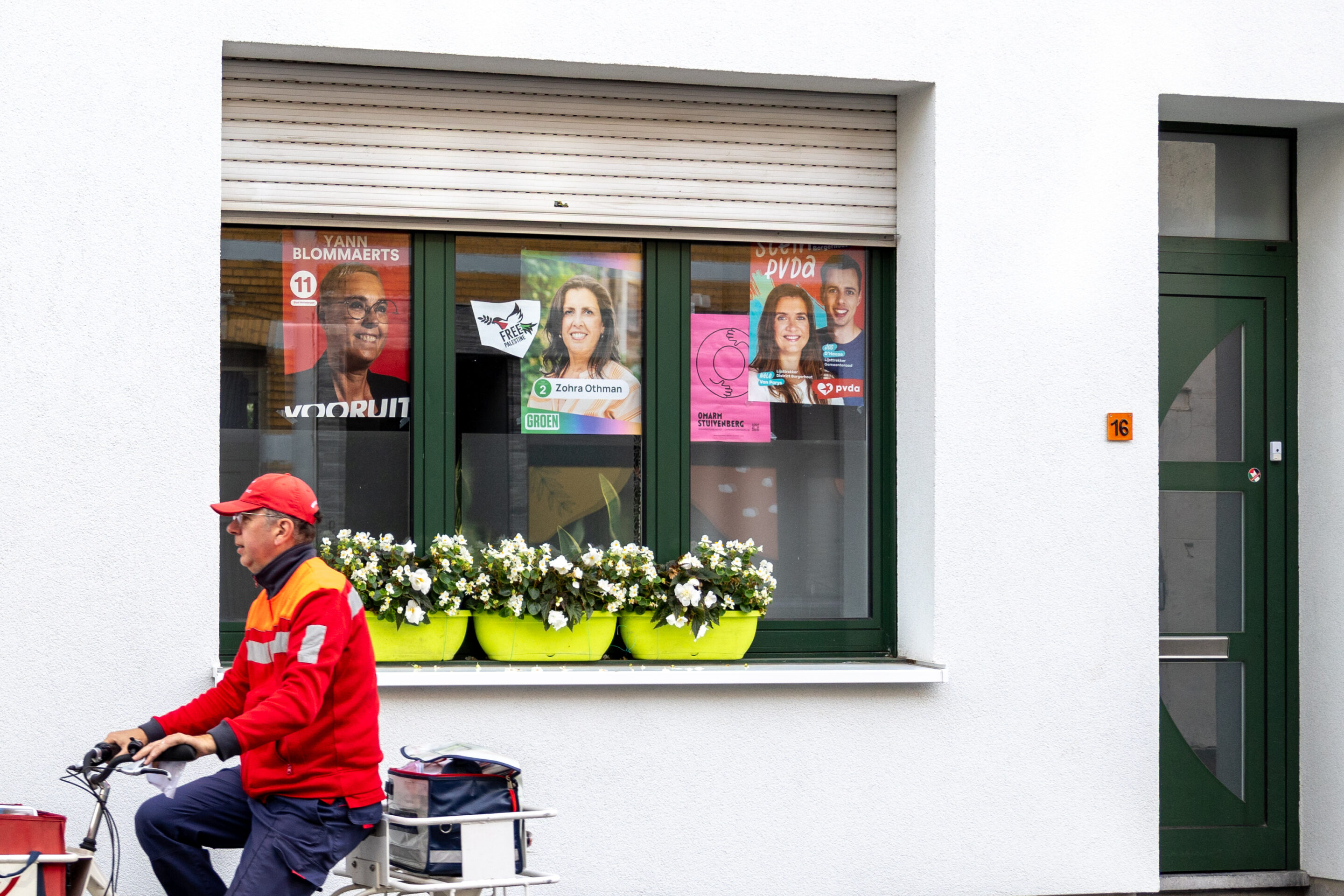Belgium will soon have a new political face at all levels, and the municipal elections can be a different kettle of fish compared to federal and regional politics, so here are five things to watch out for this Sunday.
While last June saw the country hold its regional, federal and European elections, this Sunday 13 October Belgian residents will vote again to elect new mayors and municipal councils – for the first time since 2018.
There are some key differences between June's elections and Sunday's local election: in policy-making, seat-counting and forming alliances. Party politics at the local levels often depart from national and regional conventions.
For example, there is more collaboration in local elections, with many parties running on joint or mayoral lists (Liste du Bourgmestre). In many cases in Brussels, the French-speaking and Flemish sister parties (e.g. PS/Vooruit) run together under one joint list.
On Sunday, the eyes of experts will be fixated on whether trends seen in June will be replicated, or whether there will be any surprises in store. Either way, the vote will impact your local neighbourhood.
1. Will federal elections trends repeat?
Last June, the aged political stereotype of a left-wing Wallonia and Brussels juxtaposed with a right-wing Flanders was seriously challenged after centre-right parties MR and Les Engagés emerged as the big winners in both French-speaking regions.
Flanders, despite a clear victory for right-wing nationalism, witnessed an unexpected resurgence of the left with social democratic Vooruit and the Belgian Workers Party (PVDA) greatly improving their vote shares (compared to 2019). Moreover, a study this week has also shown that Walloons and Flemings are not so divided as electoral results may suggest.
Yet, with the two election days so close to each other, there is a chance that many of June’s trends could be replicated on Sunday. Among these observed trends in Brussels, MR's rise came at the expense of a free-falling Socialist Party (PS), who have much to lose by performing poorly in the municipal elections.
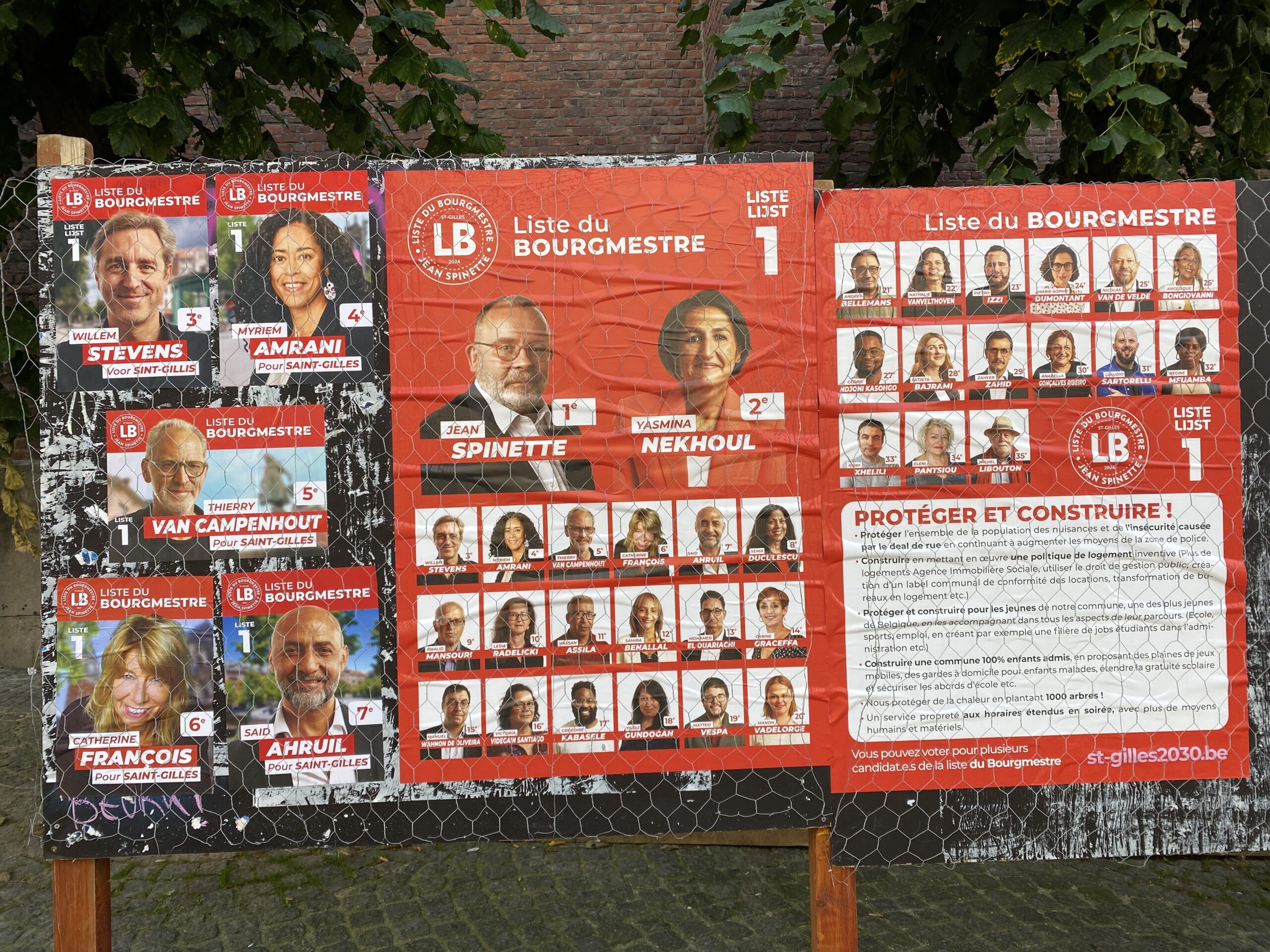
Socialist Party (PS) municipal elections. Credit: The Brussels Times
On top of MR's resurgence, the socialists face competition in Brussels from the left with PTB-PVDA and more recently, from Team Fouad Ahidar. The socialists can still count on strong grassroots support, which often is linked to close ties with unions.
Six of the 19 mayors in Brussels come from PS and the party is part of nearly half the governing majorities in the Brussels-Capital Region. In Wallonia, they boast of 78 mayors and participate in 140 coalitions, but setbacks there could be likely. Yet their strong support on the ground could also prove more resilient than expected.
Another trend was N-VA outsmarting their far-right Flemish nationalist counterparts Vlaams Belang in June to become Belgium's big electoral winners. This was greatly helped by the Flemish conservatives having clearly ruled out going into power with them.
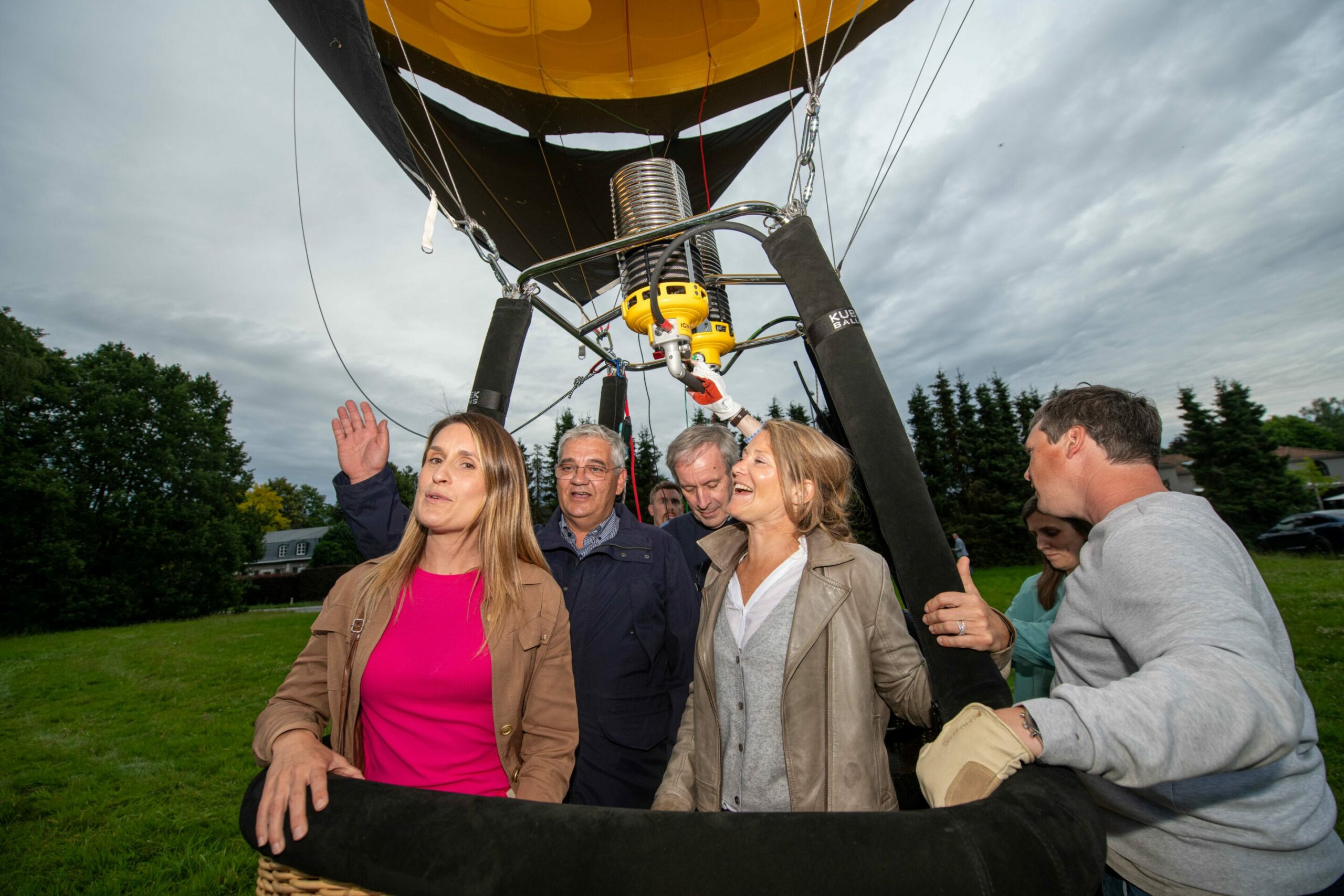
N-VA candidates launch of the campaign for the October municipal elections with a hot air balloon, Monday 08 July 2024. Credit: Belga / Jonas Roosens
In Brussels, N-VA are the only party pushing for Dutch-language municipal services in every municipality, even if the party's chances in the Belgian capital are low. However in Flanders, the party of the Antwerp mayor Bart De Wever will be looking to consolidate their lead. In June, they led in terms of percentage, but Vlaams Belang came first in more than half of the Flemish municipalities – so the battle is on.
Over to the far-right, Vlaams Belang's runner-up position in June was partly attributed to the party's failure to change its negative image. In the last few weeks, the party once again hit the headlines after it symbolically fielded (and retracted) a convicted Holocaust denier in Flanders and another candidate in the City of Brussels who openly praised fascist ideals.
The far-right party is seeking an outright majority in Ninove, East Flanders, under the list name Forza Ninove which would see Vlaams Belang able to hop over the cordon sanitaire of Belgian parties refusing to work with the far-right. Moreover, the party is the preferred choice of Flemish young people.
Another party that will want to improve disappointing results in June is DéFi. The centrist, pro-Francophone party will attempt to safeguard its Brussels strongholds of Schaerbeek, Auderghem, and Woluwe-Saint-Lambert.
Flemish liberals Open VLD, who enjoy better support at the local level, will also be hoping for a resurgence across the north and in Brussels (where it is standing with MR). Outgoing Prime Minister Alexander De Croo is standing in his hometown of Brakel in East Flanders. After having flirted with disaster in June, this local popularity could translate to better electoral performance.
2. Referendum on Good Move: will the Greens bounce back or sink?
The so-called party of the Good Move mobility plan, Ecolo, will also be hoping to avoid a repeat of the bitterly disappointing federal, regional and European results in June.
In 2018, the party secured three mayoral positions in Brussels (Ixelles, Forest and Watermael-Boitsfort) and six in Wallonia. They also joined or remained in 75 municipal majorities across Wallonia and Brussels.
At that time, Ecolo benefited from a Europe-wide rising interest in environmentalism, climate marches and opposition to Charles Michel's government in the French-speaking part of the country. However, after winning power at all levels, the greens are now paying the price for their participation in government.
This year is set to be no different. Notably, Good Move has proved to be a rare cut-through issue in Brussels after a huge campaign which will likely damage Ecolo's chances.
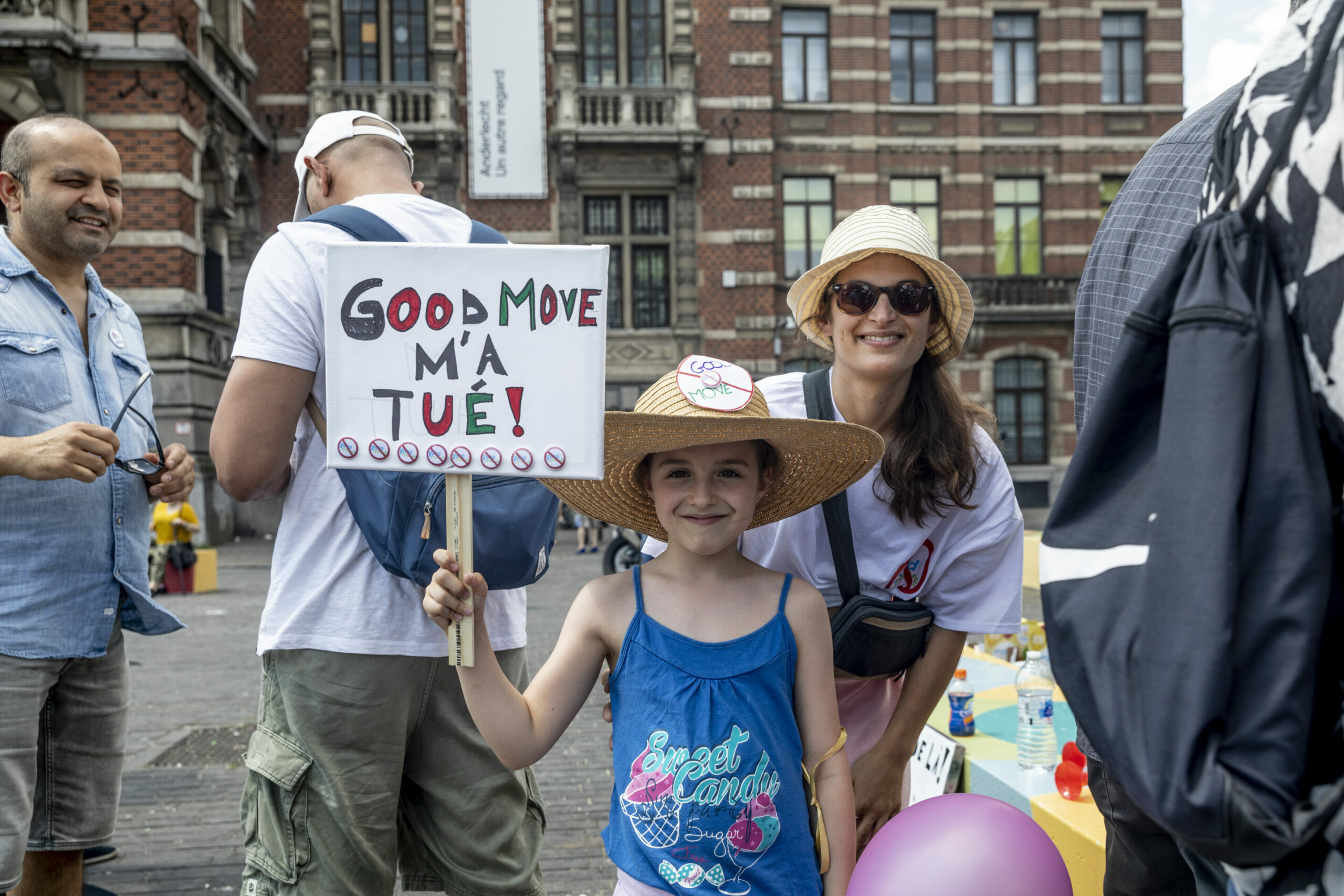
A young girl holds a sign saying "Good Move killed me" during a demonstration organised by the committee 'Non au plan Good Move' to request a review of the current mobility policies in Brussels, Sunday 11 June 2023. Credit: Belga / Hatim Kaghat
The backlash has already begun in some places. In Etterbeek, ruling coalition partners MR and PS have already made a pre-election agreement with Les Engagés to replace current coalition partners Ecolo. In many ways, the municipal elections in Brussels are a referendum on Good Move.
Ecolo's hope could be the success of Flemish greens, Groen, in Brussels. With the two running on joint lists, the Green vote will be concentrated, which could provide some respite for the embattled environmentalists.
3. Can MR break PS strongholds in Brussels?
Fresh off their success in June, MR are aiming for another victory this Sunday at the local level. The party led by Georges-Louis Bouchez boasts the largest number of mayors in Wallonia, while in Brussels, the liberals hold two mayoralties: in Uccle and Etterbeek.
But will MR’s blitz on insecurity in the capital pay off? The party has positioned itself as the voice of the opposition when it comes to security in the Belgian capital, attacking PS’ record at the helm of many municipalities. At the same time, MR itself has a patchy record in government when it comes to funding the police and the justice system.
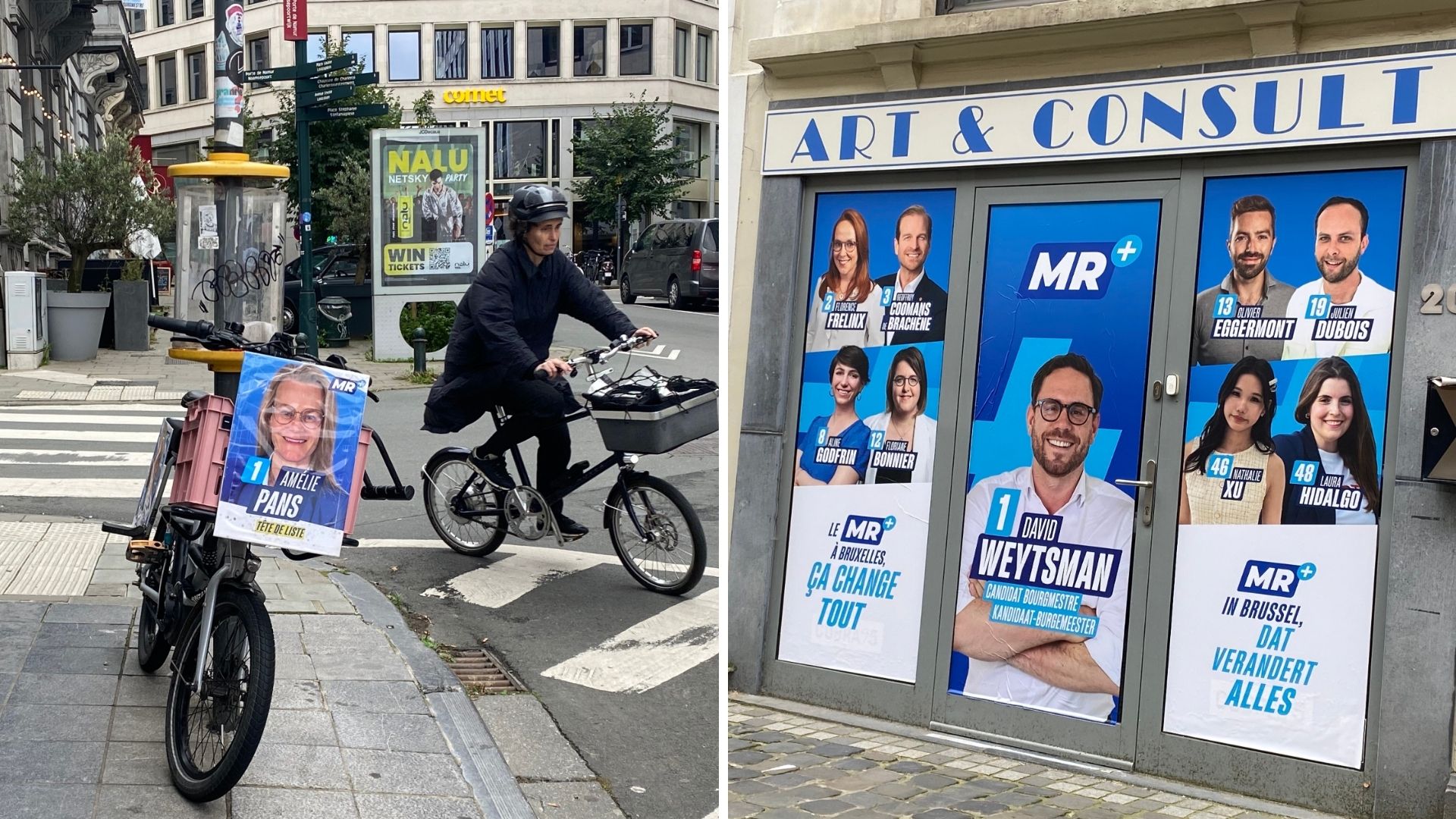
MR campaign posters around the City of Brussels. Credit: The Brussels Times
The party has also been rallying online against the Good Move policy, particularly as a way of stapling the policy onto Ecolo. Recently, MR also initiated the bill that saw the tightening of the Lower Emission Zone (LEZ) in the Brussels Region scrapped – a move described as an electoral stunt.
On Sunday, the main prize for MR would be seizing the City of Brussels from Mayor Philippe Close (PS). Regional MP David Weytsman is tasked with reclaiming a mayoralty that the party lost back in 2000.
MR could also benefit from the unexpectedly resurgent Les Engagés, with the two standing together in a number of municipalities. This new centre-right partnership has resulted in coalitions in both Wallonia and the French-speaking Community of Belgium (FWB).
4. Voting is not compulsory in Flanders: What effect will this have?
One of the silent takeaways of the June elections was that one million Belgians did not turn up to vote for the federal, regional and European elections. With a turnout of 87.42% (out of a population of over 12 million), many choose to technically break the law given that failure to attend a polling station is illegal – even if the law is rarely enforced.
For the first time, Sunday’s municipal elections will not be compulsory in Flanders, but it remains a legal requirement in Brussels and Wallonia. How this will impact Sunday's vote has been greatly debated. Some have argued that taking away the vote will result in less protest voting – such as voting for the far-right.
Others, however, pushed back on this notion, arguing that Vlaams Belang voters are more politically active than one would believe. The true effect could be on those with lower education qualifications who are not politically active. For more on this, see here.
5. Can the Belgian Workers Party win power in Brussels or Antwerp?
The rise of the radical leftist Belgian Workers’ Party (PTB-PVDA) could pose a significant challenge to PS’ dominance in the municipalities of the Belgian capital, and possibly even to N-VA's grip on Antwerp.
In June, the left-wing party made significant gains across the board and will have a chance to secure some local administrations to put their manifesto into motion. The PTB-PVDA have outflanked PS from the left in Brussels, after winning the most votes in traditional socialist stronghold areas like Anderlecht and Saint-Gilles. PTB-PVDA could also benefit from Ecolo’s electoral downward trend.
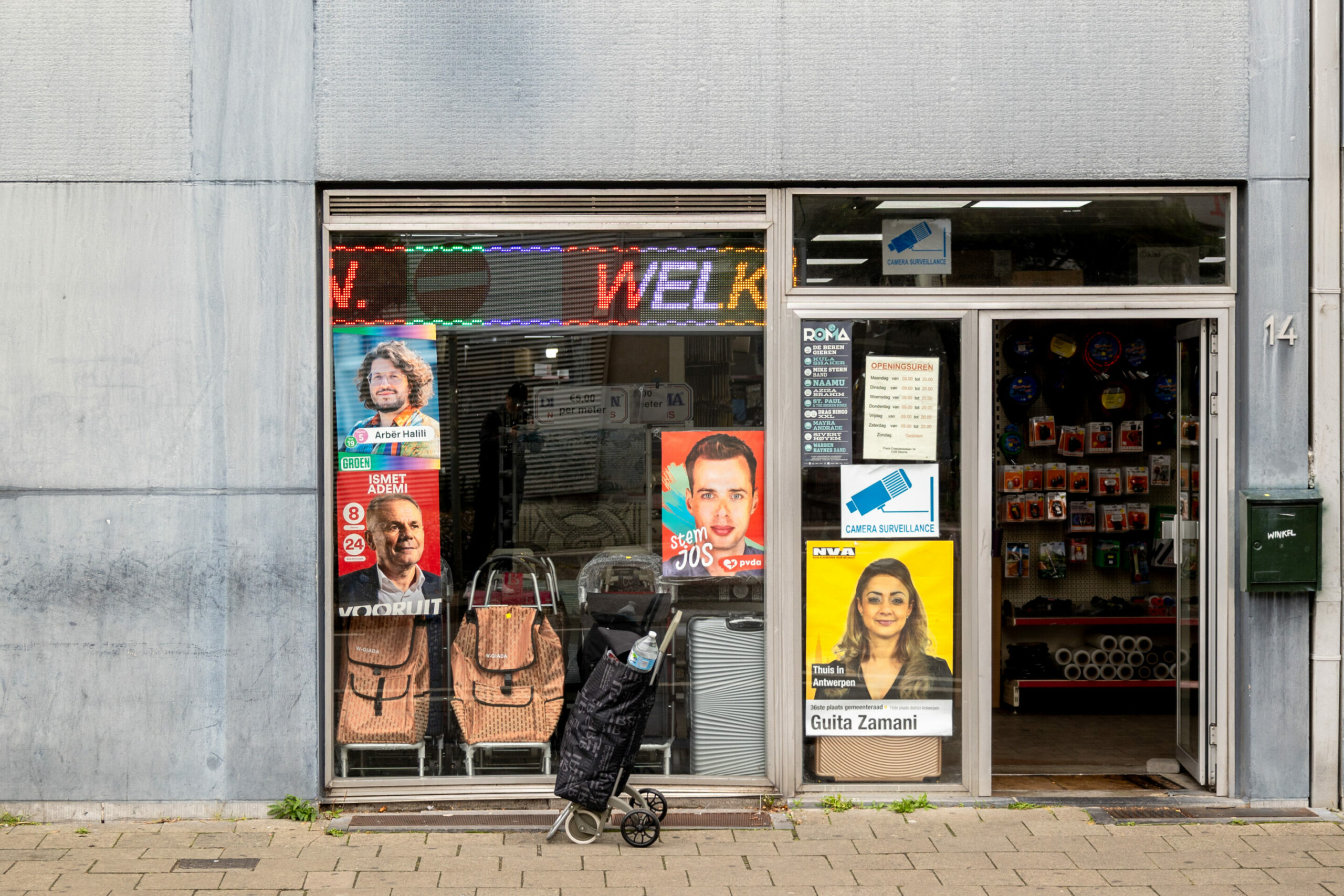
Election posters are seen in the Deurne district of Antwerp on Friday 27 September 2024. Credit: Belga / Ward Vandael
Despite increasing its share of votes in June, the Belgian Workers Party failed to attain the executive at the regional, community or federal level. Sunday presents an opportunity for an electoral coup in the capital. In Flanders, Groen and Vooruit have also indicated they would go into a coalition with them.
One poll has even suggested the party is standing on the coattails of Bart De Wever’s mayorship in Antwerp. However, ULB/VUB political expert Dave Sinardet poured cold water on the polls by pointing out it was more likely to help Bart De Wever by positioning him as the only answer to PVDA's "red menace".
If you are a Brussels resident, check out The Brussels Times Commune by Commune Guide for the 2024 local elections. See which party is running in your municipality and what they stand for.

